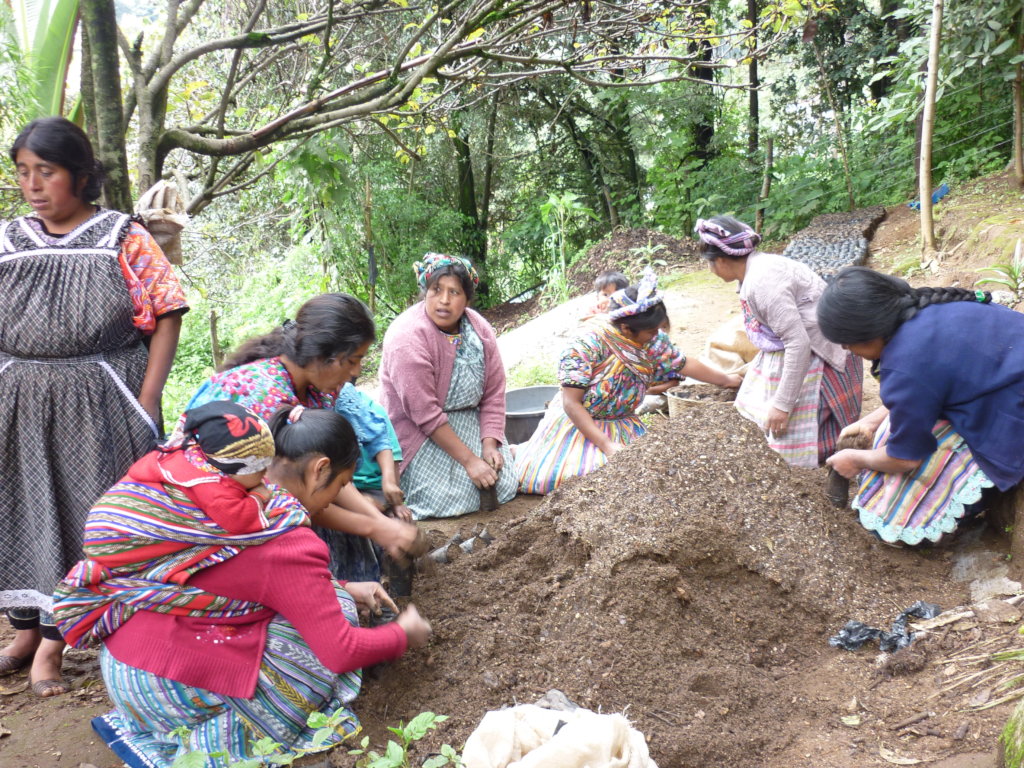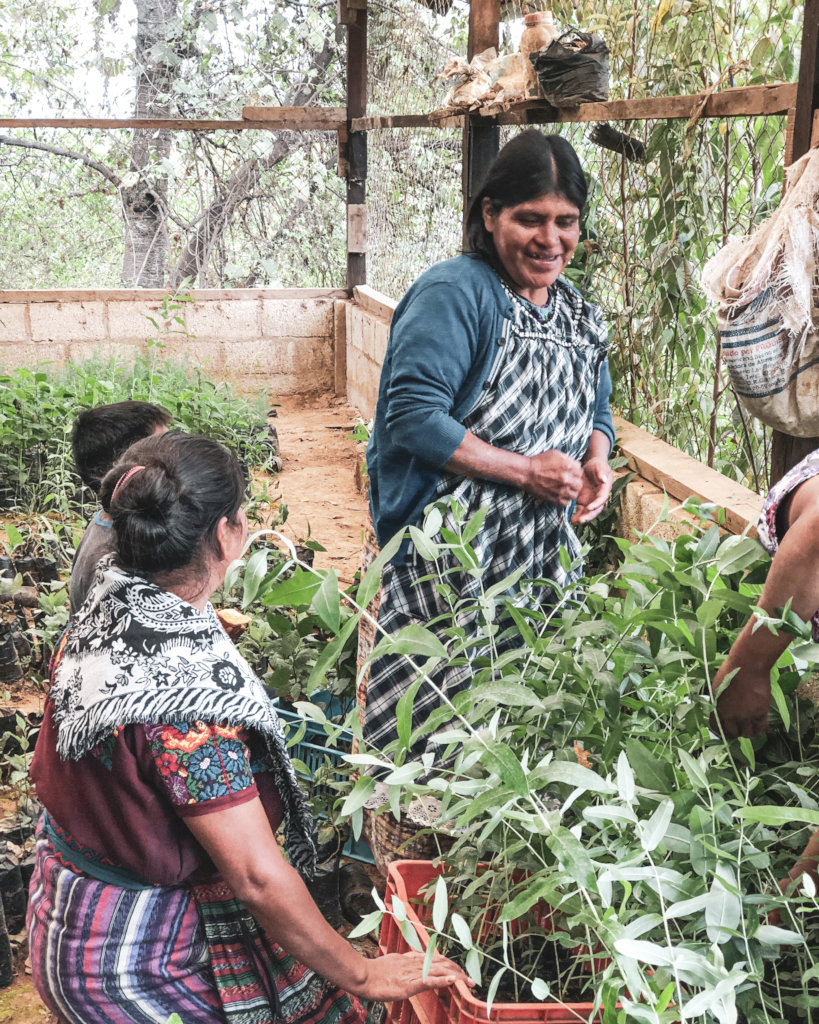By Madison Sweitzer | Outreach Director
Plant 1,000 Trees and Grow Community in Guatemala: Women’s Reforestation Initiative with the Highland Support Project
What are the root causes of deforestation in Guatemala?
The roots of deforestation and environmental degradation in the Western Highlands of Guatemala are deeply connected to colonial legacies and state violence. There is a history of violence and oppression against the Indigenous peoples of Guatemala in order to prioritize the most fertile lands for large scale, export oriented, agriculture that the state economy relies on. Additionally, the civil wars that took place in Guatemala in the latter half of the 20th century inflicted incredible violence on the Indigenous communities of the country, and as a result, many Indigenous people fled to the Highlands.
This migration to the Highlands is closely tied with deforestation in the region as the population density grows increasingly higher on limited, less fertile land. Consequently, as more land is needed to make space for agricultural production, that space often comes at the expense of forested areas in the community because food production is of course a more immediate need.
What challenges does deforestation present to our partner communities?
As a result of deforestation, our partner communities are faced with soil erosion and infertility, as well as decreased water availability and quality. Both of these consequences make cultivating food much more difficult. Furthermore, without trees to take root and prevent erosion, mountainous Highland communities are devastated by mudslides with heavy rains.
The consequences of natural disasters and food insecurity with few options for income contribute to migration out of Highland communities in search of economic opportunities and a home that is less at risk due to environmental factors.
As an organization that supports Indigenous people to live on their land, in their community, and with their culture, deforestation is evidently a critical topic to address. We are eager to build on the opportunities that the reforestation project presents.
What opportunities for change does a reforestation initiative bring?
A project addressing deforestation has the potential to bring positive change in aspects from food security to biodiversity and beyond.
Firstly, in order to bring sustainable, long term solutions, the reforestation project must be coupled with efforts to bring more opportunities for income as well as improved agricultural production. Seeing as the expansion of land for food production is one of the main contributors to deforestation in the area, it is essential that this need is first addressed so that forests are not in conflict with the community members' well-being. Therefore, the reforestation project will include workshops on sustainable agricultural methods as well as the construction of water catchment systems in local communities to increase the productivity and resilience of their own agricultural practices -- ultimately providing for better food security without compromising reforested land.
Additionally, one of the key aims of this project is to provide opportunities for Indigenous women of the communities through engaging with AMA (Asociación de Mujeres del Altiplano) and their Women’s Circles. Through these circles, women employed in the nursery are able to build a network of support and have the power to make decisions that benefit their communities, and create an increased sense of agency as they begin to see themselves as leaders and in their communities.
Therefore, while the reforestation project will surely address known environmental challenges such as preserving biodiversity, preventing erosion, and improving water retention and quality, this women-led initiative ultimately seeks to foster long term community growth through women’s empowerment while simultaneously building the communities’ resilience to climate change.
Project reports on GlobalGiving are posted directly to globalgiving.org by Project Leaders as they are completed, generally every 3-4 months. To protect the integrity of these documents, GlobalGiving does not alter them; therefore you may find some language or formatting issues.
If you donate to this project or have donated to this project, you can receive an email when this project posts a report. You can also subscribe for reports without donating.
Support this important cause by creating a personalized fundraising page.
Start a Fundraiser
